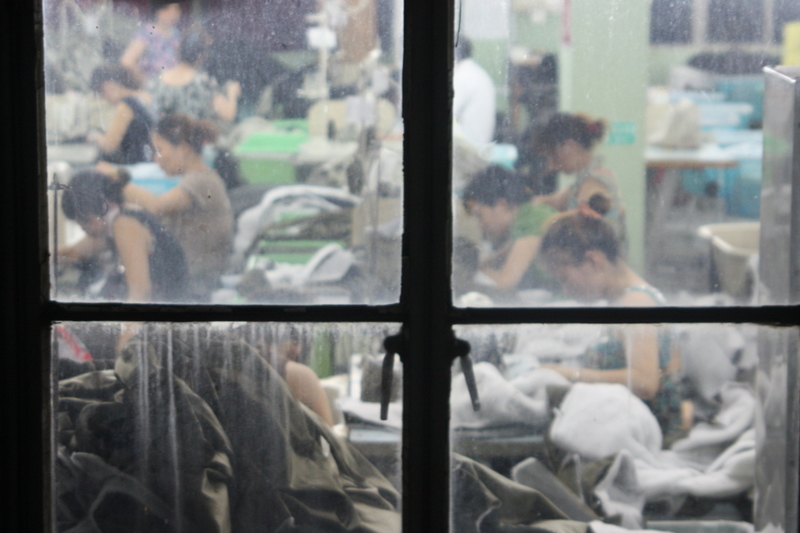As we mark the 70th anniversary of the Universal Declaration of Human Rights (UDHR), it is becoming increasingly clear that in spite of great strides in protecting human dignity, inequalities continue to persist and are deepening more than ever. It is difficult to miss the struggles women continue to experience in achieving their rights.
Women continue to bear the brunt of inequality, at all levels, in various forms.
Amnesty International’s recent report Rights Today assesses where we stand on addressing these challenges. While many countries have signed international treaties and conventions, performance in terms of implementation has been uneven. Many individuals and groups, including those who are marginalised or lack power, continue to need the support universal standards provide. Women continue to bear the brunt of inequality, at all levels, in various forms.
Companies create benefits including jobs, and contribute to economies by paying taxes. But there are many areas where they need to pay far greater attention to mitigate adverse impacts of their operations. Women continue to face discrimination at the point of entering the workforce, in the benefits they receive, the promotion opportunities they are offered or denied, the sectors in which they work and the positions they are offered. All too often, they also face harassment and bullying and many companies fail to integrate them better when they re-enter workforce.
The human rights framework is based on the foundation principles of equality and dignity, yet gender-based discrimination and economic, social, and legal barriers to equality remain in place. Today, 104 countries have laws that prevent women from working in some jobs. The Global Gender Gap report 2017 documented an increase in the gender income gap, with women paid an average of $12,000, compared with $21,000 for men. Women still own less than 20% of the world’s land, even though they contribute to almost half of the workforce in agriculture. Reports confirm that core components of talent management still disadvantage women, creating a vicious cycle in which men continually dominate executive positions.
Continuing inequalities likely reflect the unconscious biases and stereotypes that remain in our societies
Even the UDHR, exhibits male dominated language. Article 1 of the UDHR starts with, “All human beings are born free and equal in dignity and right“ (the UDHR does not spell out any rights exclusive to women – however, there Articles 2, 3, 5, 16 and 25 that make a specific reference that any rights granted by the UDHR apply to men and women equally) followed by “They are endowed with reason and conscience and should act towards one another in a spirit of brotherhood”. If it had been drafted today, we would of course insisted on more gender sensitive language - that the spirit of ‘sisterhood’, or her rights, her country, her control, her family, her privacy, her honor, her interests be included as well. Continuing inequalities likely reflect the unconscious biases and stereotypes that remain in our societies.
Businesses do not impact women outside societal structures and hierarchies; rather their impact on women is rooted in interlocked systems of existing power inequalities.
Business-as-usual policies, practices and cultures that fail to consider the specific needs of, and impacts on, women perpetuate gender inequality. Women account for half of the world’s working-age population, yet contribute to only 37 percent of the world’s GDP. They continue to be underrepresented in the global workforce, despite the fact that closing the gender gap could add $28 trillion in GDP growth by 2025. Women are underrepresented on corporate boards and in leadership positions, and are often found in most precarious work environments, at the bottom of supply chains.
The #MeToo movement has established that, in addition to power inequalities, absence of clear policies against bullying and sexual harassment in the workplace act as powerful deterrents - women may feel inhibited from complaining about incidents of harassment and discrimination. Similarly, development projects tend to affect women more adversely than men, given they are disproportionately represented among the poor, may not own land, and are less likely to be consulted on projects affecting their livelihoods. Deep-seated discrimination and inequalities result in fewer choices for women, rendering them more vulnerable - women and girls make up 'nearly three quarters' of modern slavery victims.
women and girls make up 'nearly three quarters' of modern slavery victims
The need to close the gender gap, both in the workplace and society, is more urgent than ever.
Gender equality with a specific focus on women’s empowerment has become a prominent feature of global debate in recent years. In 2018, the World Economic Forum focused on women at work; over 1800 business leaders around the world have signed for Women Empowerment Principles; more and more companies are signing on pledges to advance women; and business leaders who support women in business are increasingly recognised. Realising the importance of providing a gender dimension to its work, the United Nations Working Group on Business & Human Rights is pursuing a project to provide a gender lens to the UN Guiding Principles on Business and Human Rights.
It is encouraging that more business leaders focus on advancing women at work in combating inequalities, not just because giving women and girls the opportunity to succeed is the right thing to do, but because it can transform economies and societies.
Unfortunately, not enough leaders and potential leaders comprehend the issues involved and don’t receive training through business schools and other leadership programmes.
Last year, Ashoka University’s Genpact Centre for Women’s Leadership developed a course on these topics in collaboration with the Institute for Human Rights and Business and Gender at Work . The week-long course was designed to provide knowledge, cultivate expertise, and develop empathy for future business leaders to enable them to face and overcome structural and societal barriers to achieving gender equality. But that is only a start.
Much more is needed – more granular courses that focus on region-specific concerns; more detailed examination of specific challenges in particular sectors; and the development of ideas, tools, and practical solutions that can help companies address the real issues, including intersectionality that add further layers of vulnerabilities and discrimination. Lastly, collective action from various stakeholders and impetus at policy level is a must for achieving equality.
In our work at UNDP Asia Pacific, we promote regional peer learning and training events that advance the strategies in support of the advancement of National Action Plans, or similar policy frameworks, in furtherance of implementation of the UN Guiding Principles. The project promotes a partnership architecture bringing greater coherence to policy and advocacy efforts among actors working on a regional level on business and human rights while strengthening civil society organizations and National Human Rights Institutions that provide access to effective remedy for violations of human rights in the context of business operations. Gender continues to be cross-cutting theme in all our work as National Action Plans or any advocacy efforts will be half effective without a gender lens.
We must go beyond policies.
We must go beyond policies.
The real challenge is to change age-old narratives that perpetuate gender inequalities. It is about wider social change and examining the human rights responsibilities of businesses, the impact of business operations and their supply chains on women, and how all stakeholders, including government, civil society, and business can better contribute to achieving the UN’s mission of “Planet 50-50 by 2030: Step It Up for Gender Equality” (an initiative by UN Women calling upon governments to make national commitments to ensure that gender equality is a lived reality by 2030).
We need to cultivate like-minded and committed individuals and organisations to advance this agenda, to change the tainted glass through which women are viewed, and create a new vision where equality is not a fight but a new norm.
Photo: Flickr/Matt





























How should businesses respond to an age of conflict and uncertainty?
As 2024 began, European Commission President Ursula von der Leyen aptly summed up our deeply worrying collective moment. As she put it, speaking at the annual World Economic Forum in Switzerland, we are moving through “an era of conflict and...
26 March 2024 | Commentary
Commentary by Scott Jerbi, Senior Advisor, Policy & Outreach, IHRB